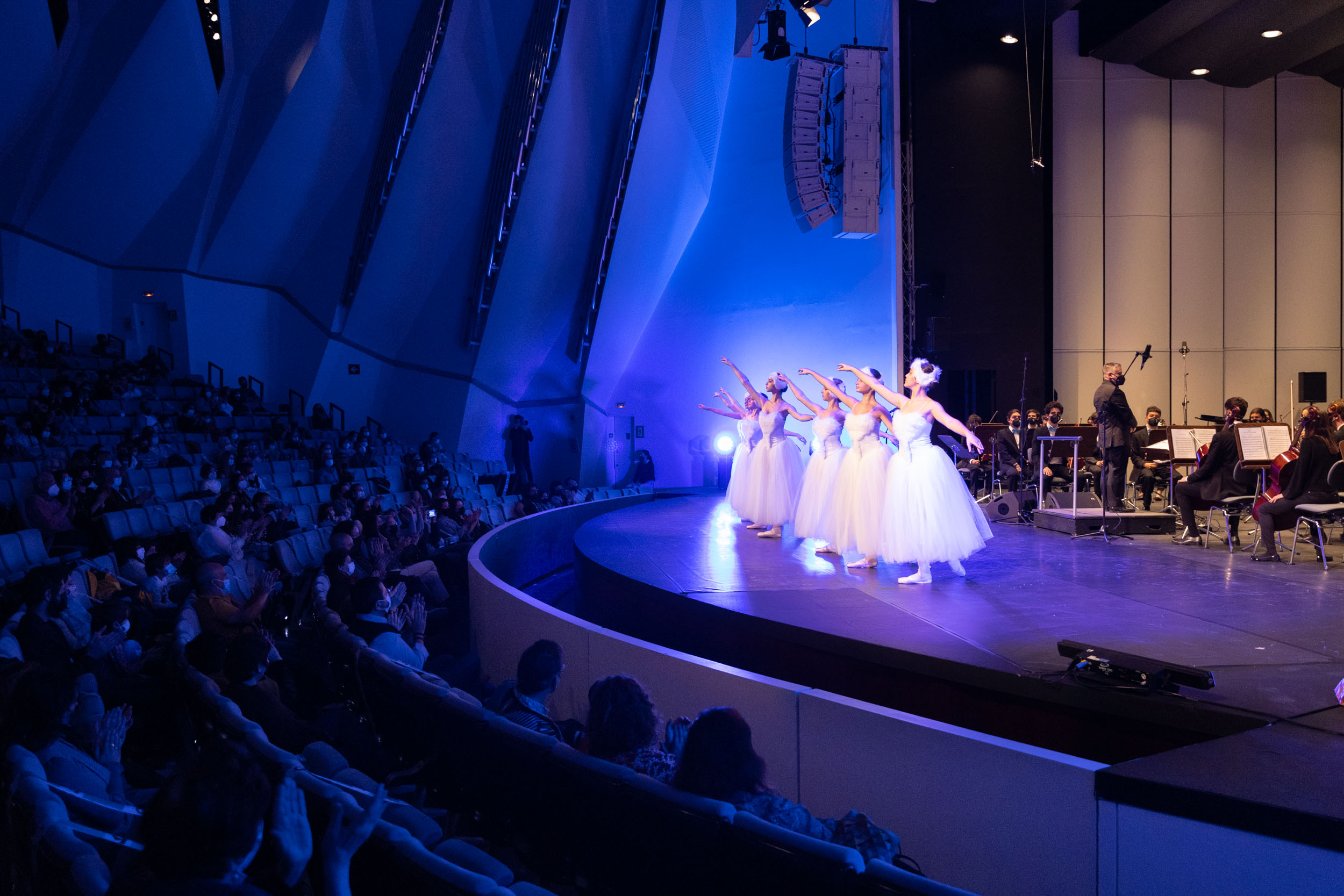MORE THAN 15,000 PEOPLE PARTICIPATED IN ACTIVITIES ORGANISED BY THE EDUCATIONAL AND SOCIAL DEPARTMENT OF AUDITORIO

Shows for schools and social shows, teaching guides and educational resources structure the proposal with 128 activities.
The Educational and Social Department of the Auditorio de Tenerife benefitted a total of 15,000 people in the season that has just ended. They participated in the 128 activities carried out by the project which involves the departments of Culture and Education of the Council of Tenerife. Shows for schools and social shows, classroom performances, meetings with teachers, teaching guides and educational resources structure the proposal.
The activities took place from November 2021 to June 2022, and in the first half of this period, the capacities were still constrained by measures against COVID-19. The programme Teatro en la Escuela (Theatre at School), which brings performing arts and music to classrooms all over the island, had 89 shows and 7,120 spectators. The ten educational concerts by the Tenerife Symphony Orchestra held at the Auditorio brought together 2,749 people. The school and public shows of Opera en familia (Family Opera) with Les contes d’Hoffmann (The Tales of Hoffmann) had 2,700 attendees.
The programmes Escuelas de Teatro (Theatre Schools), which holds theatre classes grouped according to age in 12 municipalities on the island, and Teatro Aficionado (Amateur Theatre), which promotes this art among cultural associations, brought together more than 300 people among the participants and the public. They attended the final displays or shows of both initiatives. The fifteen other education and family shows were enjoyed by 2,3031 people.
Last weekend, the Department of the Auditorio actively participated in the programme of the annual event of the Network of Organisers of Educational and Social Concerts (ROCE) to which the Auditorio de Tenerife belongs. It took place in San Sebastian under the slogan Leadership, diversity and innovation in management models.
The Educational and Social Department of the Auditorio de Tenerife was created with the aim of bringing arts and creative processes to all citizens, with a particular focus on school pupils and people at risk of social exclusion. One of its objectives is to nurture the relationship between artistic and cultural activities with the way in which they are conveyed to society and to encourage space for building a relationship between art and people. Its main idea is for art to make an unquestionable contribution to social wellbeing, the recognition of individual and collective identity, as well as training and the use of critical thinking needed for mature democratic social coexistence.


